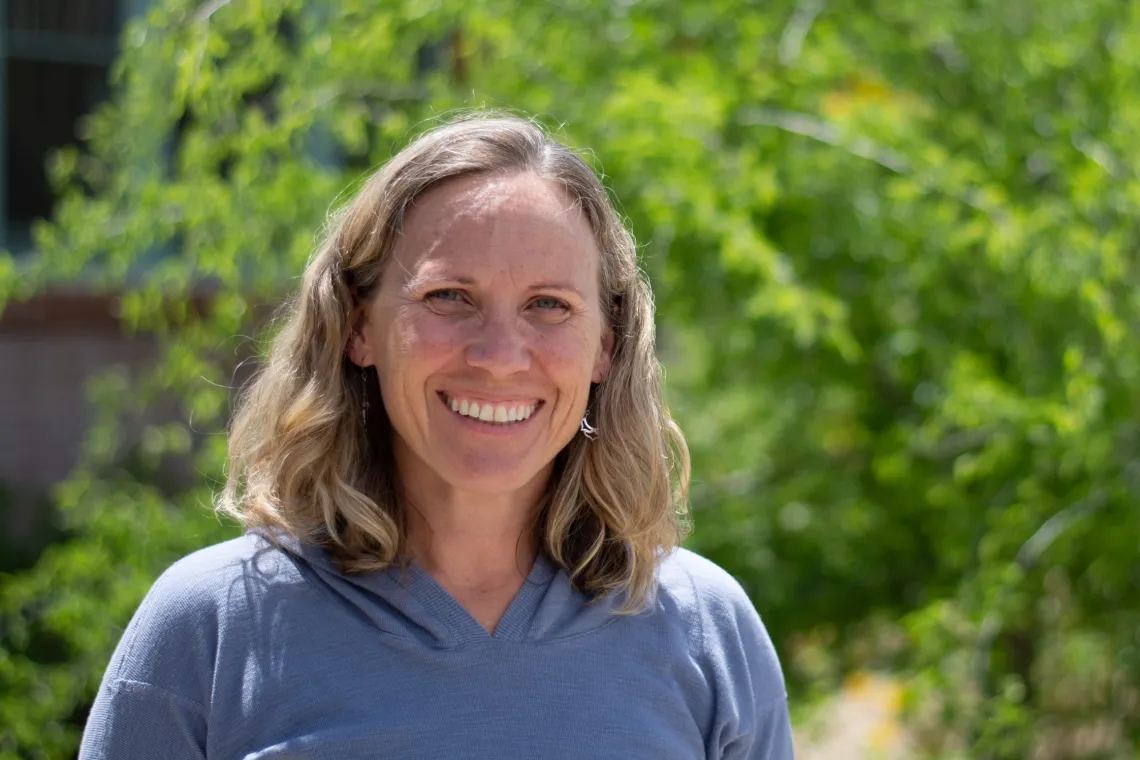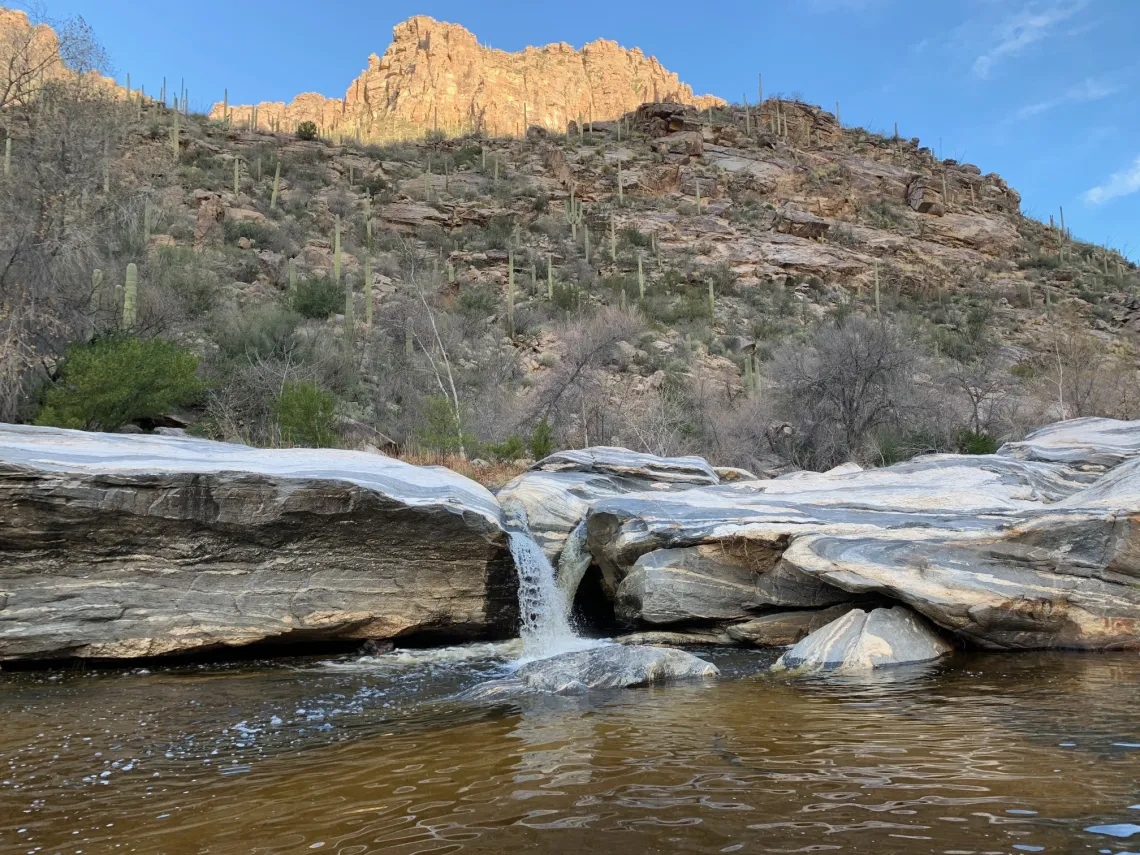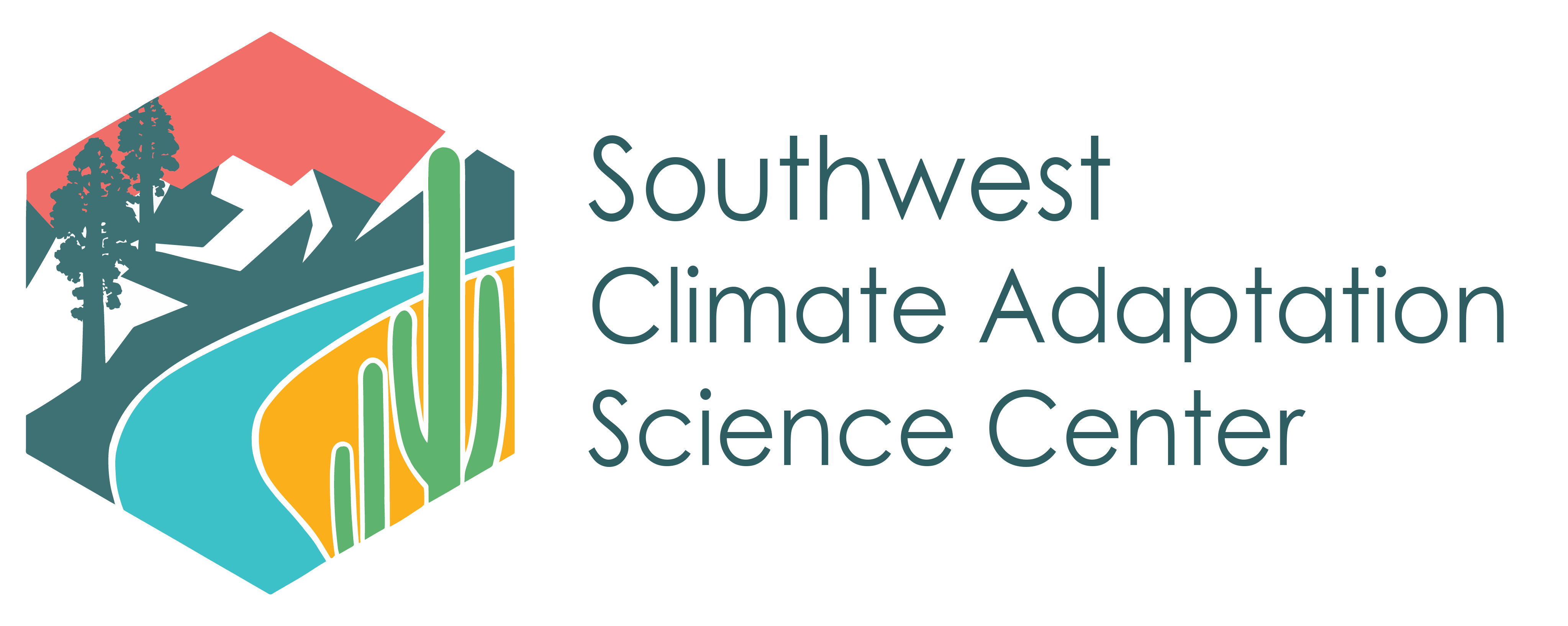Community and Cultural Engagement in Adapting to Climate Change

This profile is a part of our consortium profile series, highlighting the people that make up the SW CASC—what inspires them, makes them passionate about their research, and gives them hope for the future. For this profile, Bryson Mineart (SW CASC communications student assistant and undergraduate student in the University of Arizona Computer Science program) interviewed SW CASC co- principal investigator, Alison Meadow, an associate research professor at the University of Arizona.
Alison Meadow’s climate adaptation work stems from both her social science and climate science backgrounds. Her undergraduate degree, from Trent University in Canada, was in Native Studies and Anthropology. Her undergraduate programs concentrated primarily on community-based research methods. From here, Alison obtained her MA degree from the University of Arizona’s American Indian Studies program and her MS from the UA’s Planning program. Her doctoral degree is from the University of Alaska Fairbanks and focused on climate change adaptation. Pairing Alison’s social science skills with her background in climate science makes her a great addition to any team focused on climate adaptation. She provides the science information while her community partners bring skills and expertise to the table that she may not have. This sharing of knowledge and information creates a great team ready to make changes for a better future.
Alison’s work with the SW CASC focuses on evaluating actionable science research projects. Her priority is to help researchers plan, execute, and evaluate their engaged research projects to ensure that the projects are as effective as possible in producing climate science that is used by resource managers and other decision makers to inform policy and practice.
Through her affiliation with CLIMAS (Climate Assessment for the Southwest), Alison engages with communities directly to gain information on how they perceive climate change and what it means to them. It is important to allow communities to be the lead in the climate adaptation process for their area, and Alison acts as a guide to aid them in finding the best solutions. Much of Alison’s inspiration comes directly from working with these communities and collaborating with others to assess which plan of action will provide the largest positive impact.
Alison’s community research projects have given her opportunities to work with several different resource management agencies and communities. Recently, she has worked with communities in Flagstaff, Sedona, and several Indigenous communities across the Southwest region. On top of her community-based work, Alison recently finished a project with the Arizona Land and Water Trust, a conservation non-profit. The pandemic has affected her in-person style of research, making it harder to communicate with communities. While she is still doing much of this research over the internet, she looks forward to the day where she can conduct this research face-to-face.

Alison’s passion to continue her career is primarily derived from discovering the societal impacts of climate change research and how this research finding ways to improve people’s lives. Alison also has a great deal of passion about making sure her fellow researchers understand the impact that their research is having, as well as getting the recognition and rewards that they deserve. Societal impacts evaluation is one way that climate science researchers can identify the ways in which their research contributes directly to the fight against the damaging effects of climate change. For more information on societal impacts evaluation refer to the link for Alison and Gigi Owen’s guidebook to planning and evaluating societal impacts (https://rie.arizona.edu/resources).
Alison’s hope for the future is based in actionable science and bridging the science-management divide. She believes that there have been crucial steps taken to create teams that are not only diverse, but contain the necessary skills to collect information, utilize this information, and translate it to the general public. Alison stresses the importance of working with communities to build on their connections to the land and to each other. These strong connections and commitment to adaptation will allow for necessary changes to come from the community itself. Alison believes that the integration of climate science with community-based research projects creates a perfect blend to create robust, actionable science plans.
Alison serves as a bridge between science and communities, and she evaluates new science and policies based on their effectiveness and to confirm that we are working towards a brighter future. Alison has a great deal of hope in future generations of scholars who are showing that they want to learn these same valuable skills in the hopes of protecting our environment from further harm. Alison was recently featured in an article in (“What does five more degrees mean to you?”). Read the article here.

